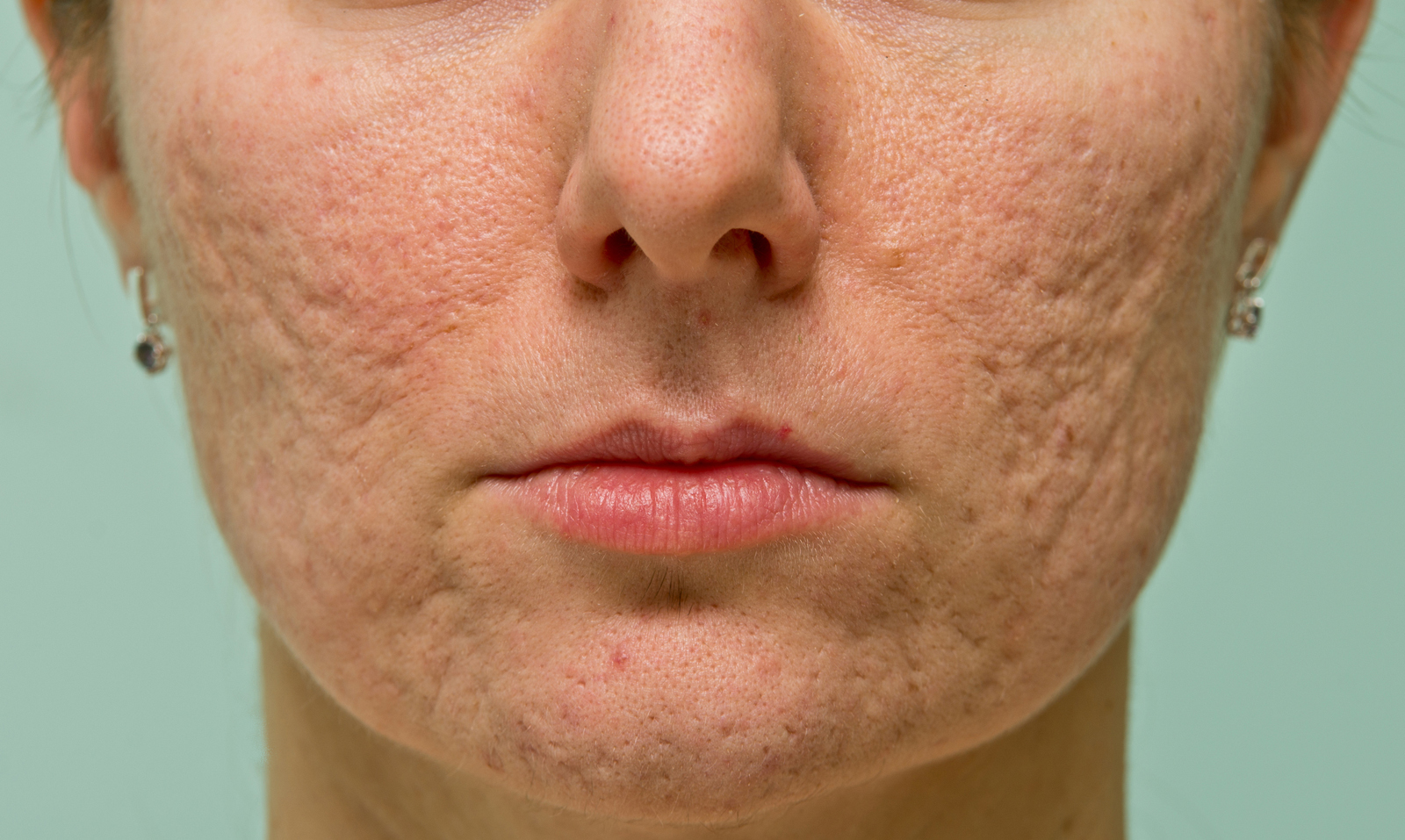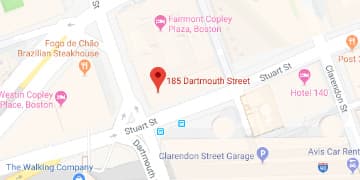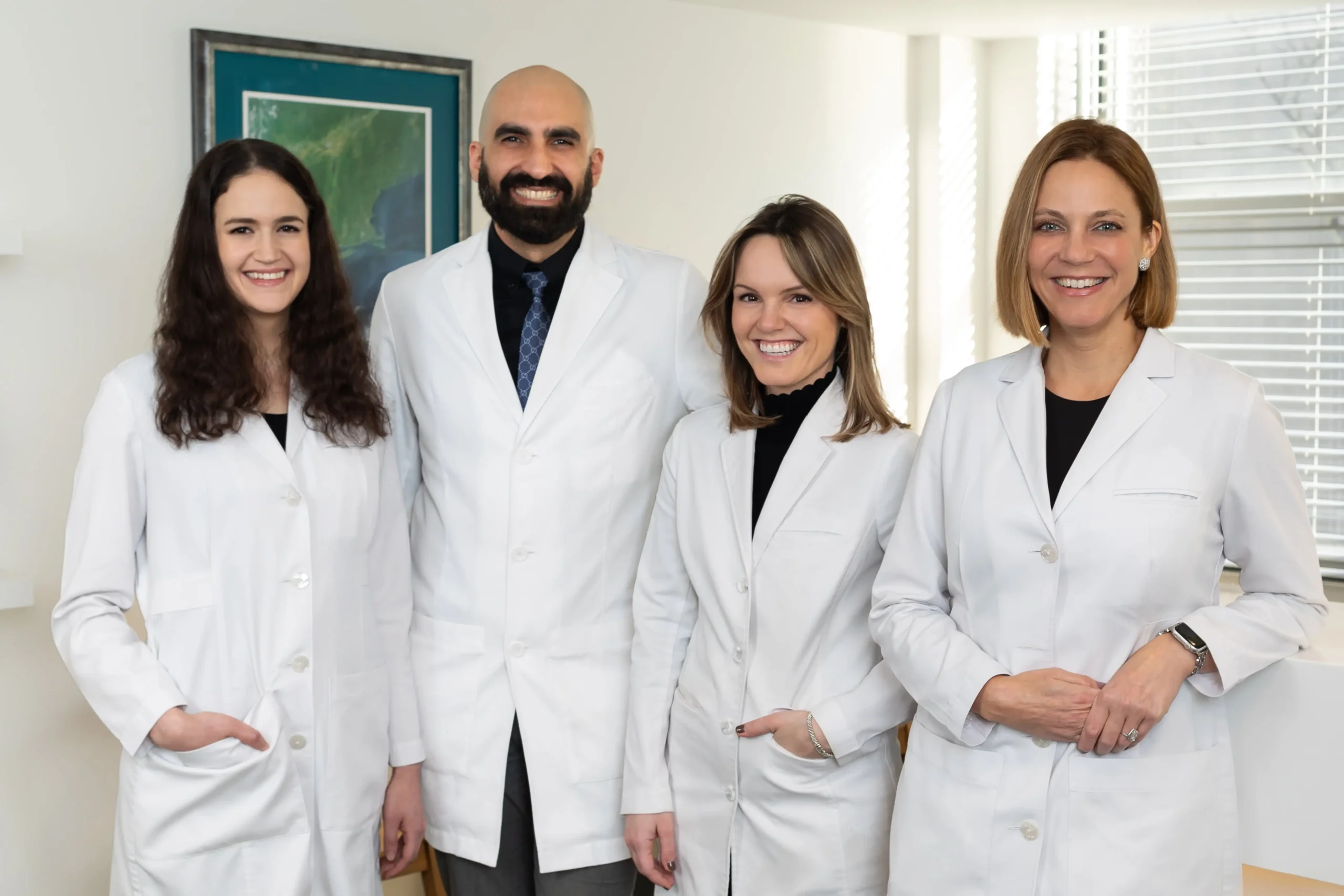Acne Scar Treatment
Jump To
Dr. Graber Discusses Acne Scar Treatment Options
Today, there are many types of acne scar treatments because there are so many types of acne scars! Two different kinds of discoloration can be left behind by acne. Post-inflammatory erythema is a type of red discoloration, while post-inflammatory hyperpigmentation is a type of brown discoloration.
Acne can also leave depressions in the skin (known as atrophic scars) and thickening of the skin (known as hypertrophic or keloid scars). Because you may be experiencing multiple types of acne scarring, a combination of treatments may be necessary. Your dermatologist will help you decide which options work best for your skin.
Moreover, you should never shy away from the results you’re looking for. Understandably, acne and scarring skin can have a daunting effect on your self-esteem, but remember that these skin complications don’t have to be permanent. To get a clear idea of the various types of scarring on the skin, keep reading below for a comprehensive review of which type you may be experiencing. This will help you determine which acne scar treatment may be right for you.
Types of Acne Scars and Treatment Options
Post Inflammatory Erythema (PIE):
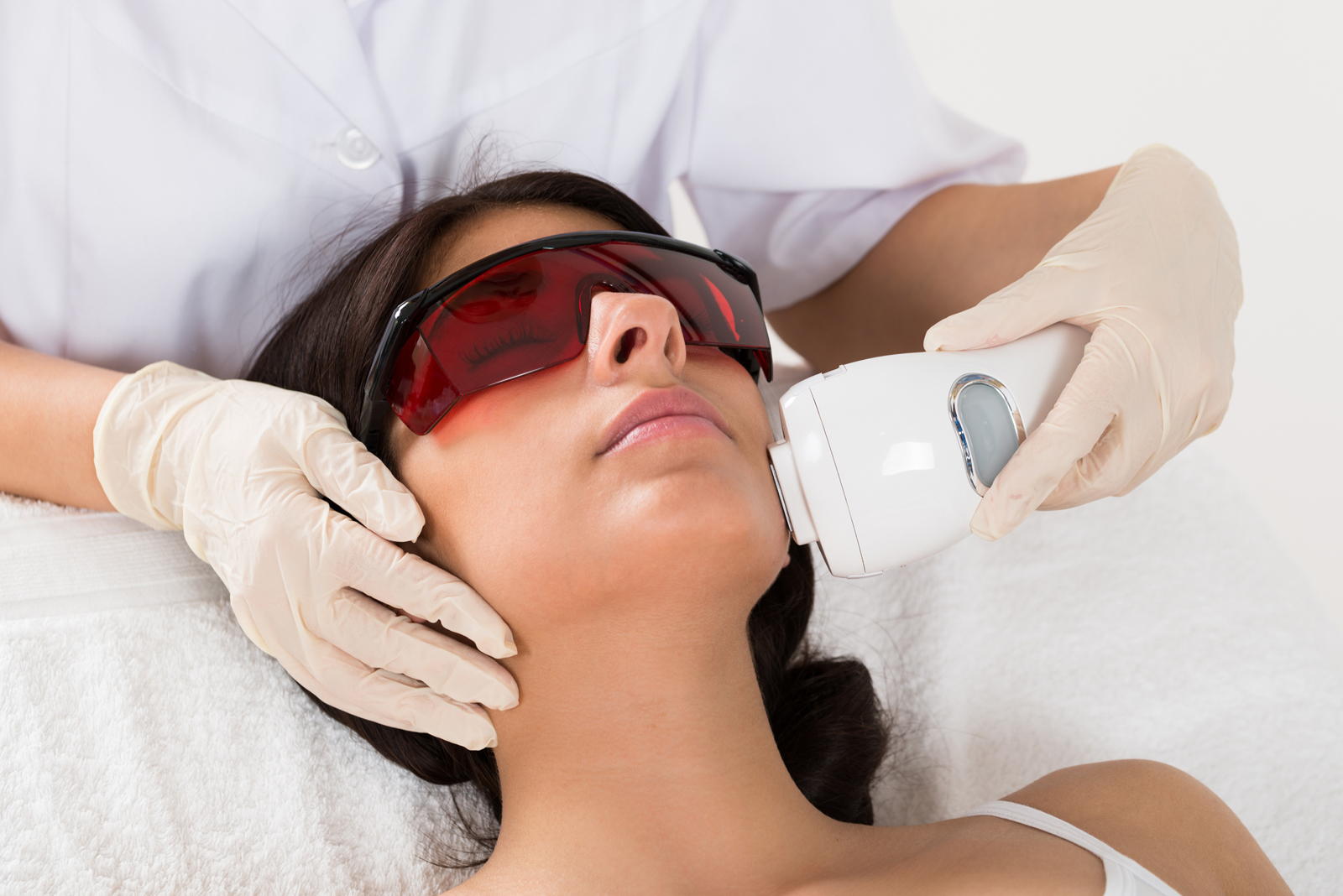 PIE is a type of acne scar that leaves small red marks on the skin in areas where there was previously an acne lesion. This redness is best treated with a laser treatment for acne scars called the Pulsed Dye Laser (PDL), otherwise known as the VBeam laser. Generally, a minimum of 2-3 treatments are needed for adequate results. Patients will notice that the treated areas are usually redder for a few days up to one week before beginning to fade.
PIE is a type of acne scar that leaves small red marks on the skin in areas where there was previously an acne lesion. This redness is best treated with a laser treatment for acne scars called the Pulsed Dye Laser (PDL), otherwise known as the VBeam laser. Generally, a minimum of 2-3 treatments are needed for adequate results. Patients will notice that the treated areas are usually redder for a few days up to one week before beginning to fade.
This type of scarring is generally one of the most common as most people experience acne for years during their teens and even into adulthood. It can be harder to manage for some than others, and scarring can worsen over time, especially if acne reappears in the same areas over and over.
Post Inflammatory Hyperpigmentation (PIH):
PIH is a type of acne scar that leaves small brown marks on the skin in the areas where there was previously an acne lesion. It is more common to see this in people of darker skin types. Generally, PIH tends to fade on its own, but it could take over one year for some people. Often this type of discoloration is best treated with chemical peels. It may also be treated with the diligent use of prescription or over-the-counter lightening creams.
For those who struggle with acne, this can become a compounding issue leading to substantial skin discoloration in extreme cases. It may not pose a particular health threat, but there’s plenty you can do to get your skin back to a more uniform look. Although PIH may be more commonly found in those with darker skin types, this can happen to anyone, and the severity can also significantly differ.
Depressed Acne Scarring:
Depressed acne scars (also known as atrophic scars) are a type of acne scar that leaves small indents in the skin after an acne lesion has run its course. One or two spots may not seem like a big deal to most people, but others suffer from uneven skin that can be much more severe. As acne increases, this particular type of scarring can worsen for some individuals. However, finding treatment for acne spots comes with multiple solutions. This is an area of skin that can be smoothed over by multiple different techniques. Fractionated lasers are very safe and can help smooth skin in these areas. The treated area will be red and swollen immediately after treatment.On average, the skin will need 2-3 days to heal from the laser and return to normal. Generally, 4-6 treatments are needed, usually spaced apart monthly.
Microneedling is another method that can be used to treat depressed acne scars. During this procedure, the doctor will use a device to poke many tiny holes into the skin surface and then apply a serum that promotes skin cell turnover and collagen production.Over time, this helps to smooth out the surface of the skin. Immediately after treatment, the area will look red and raw, healing in about 2-4 days. On average, patients require four or more treatments for complete results.
Depending on the severity of the acne scars, it may take more than laser scar removal treatments to get the job done. Another option for treating depressed acne scarring is fillers. Fillers are gel-like substances injected right under the skin to fill in depressed areas of the skin. This helps to smooth out the skin.
Thickened Scars (hypertrophic or keloid scars):
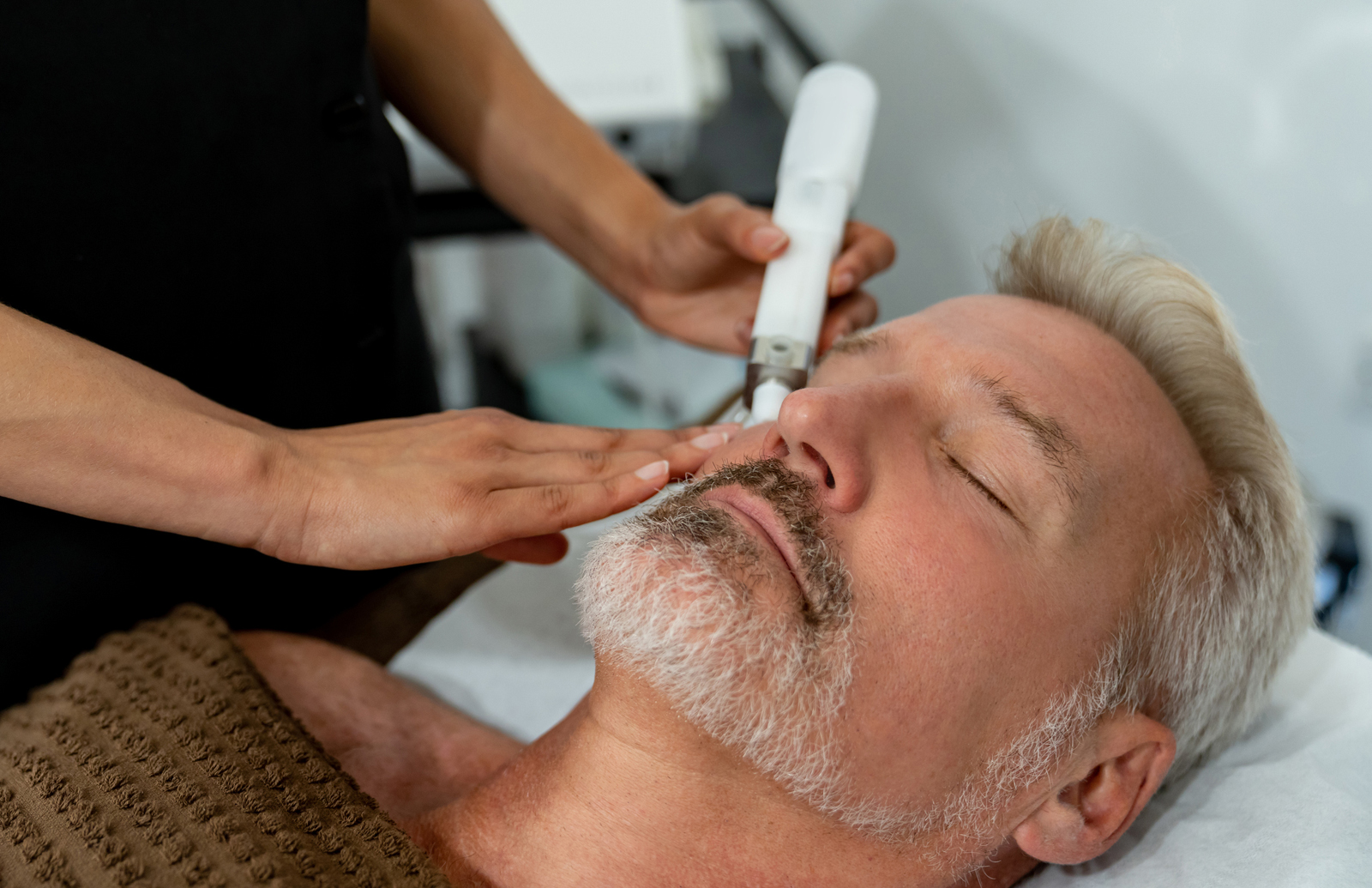 These types of pimple scars are due to thickened skin in the area of previous acne lesions. These can be treated with injections of a steroid solution which can help thin out a thickened scar. These lesions generally need multiple injections over time to completely flatten out. Microneedling is another method that can be used to treat thickened acne scars. During this procedure, the provider will use a device to poke many tiny holes into the skin surface, and then apply a serum that promotes skin cell turnover and collagen production. Over time, this helps to smooth out the surface of the skin. Immediately after treatment, the area will look very red and raw, which will heal in about 2-4 days. On average, patients require 4 or more treatments for complete results. Some hypertrophic or keloid scars may respond to a surgical procedure known as scar revision. Your dermatologist will let you know which is the best treatment regimen for you.
These types of pimple scars are due to thickened skin in the area of previous acne lesions. These can be treated with injections of a steroid solution which can help thin out a thickened scar. These lesions generally need multiple injections over time to completely flatten out. Microneedling is another method that can be used to treat thickened acne scars. During this procedure, the provider will use a device to poke many tiny holes into the skin surface, and then apply a serum that promotes skin cell turnover and collagen production. Over time, this helps to smooth out the surface of the skin. Immediately after treatment, the area will look very red and raw, which will heal in about 2-4 days. On average, patients require 4 or more treatments for complete results. Some hypertrophic or keloid scars may respond to a surgical procedure known as scar revision. Your dermatologist will let you know which is the best treatment regimen for you.
How To Avoid Scarring
Some cases of acne can be much more damaging than others, and even with over-the-counter or medicated acne treatments, it’s common for them to leave scarring behind. However, many scars people encounter over time could be due to face picking or forcing acne to end its life cycle early.
This can quickly increase the amount of damage done to the skin and, in many cases, will guarantee scarring after it heals. Of course, facial scars may be inevitable with more severe cases of acne, but you can do plenty to ensure it’s minimized along the way. All you can do is manage your facial hygiene and do your best not to pick at your acne, no matter how frustrating it may be.
Schedule A Consultation
If you’ve struggled with acne to the point that you’ve noticed scarring on the skin, feel free to contact us for an expert’s opinion on your next step. With the numerous acne scar treatments we have available, you can rest easy knowing that your skin can be improved in the long term.
We have a thorough understanding of how scarring can occur, and if you schedule a consultation with us, we’ll offer all the details you need to make an informed decision for the health and appearance of your skin. All-in-all, we’re more than equipped to get rid of acne scars of any kind.
Frequently Asked Acne Scar Treatment Questions
What is the most difficult acne scar to treat?
Generally, a type of depressed acne scar known as an ice pick scar is considered to be the most difficult acne scar to treat.
Ice pick scars are very narrow. These v-shaped holes have a look that is similar to oversized pores, chicken pox scars, or puncture wounds. They typically appear on a person’s cheeks.
These scars form after cystic or nodular acne, which are very severe types of acne. When these inflamed acne lesions cause enough damage to the skin tissues, they leave behind ice pick scars.
Ice pick scars are considered the toughest acne scar to treat because they are the deepest and most severe type of acne scar. Ice pick scars reach deep below the skin’s epidermal layer and into the dermis.
Because these acne scars are so deep, ice pick acne scar treatment in Boston is more complex. Skin that is damaged must be addressed, the deep scar must be filled, and skin discoloration must also be treated. This process can involve microneedling, laser treatments, TCA chemical peels to remove damaged skin and encourage collagen production, and various other treatment methods.
How does microneedling help treat acne scars?
Microneedling is an ideal treatment method for depressed acne scars and thickened scars. This treatment creates incredibly small controlled microinjuries around 3 mm into the skin layers. The exact depth varies depending on the depth of the acne scar being treated.
This controlled microscopic damage triggers the skin’s healing process, encouraging creation of new collagen and elastin protein in the area at an advanced rate. The stiff scar tissue is broken down by the microneedles, and new undamaged skin cells are created at a faster rate as part of improved skin-cell turnover.
To further promote acne scar reduction, a healing serum is applied to the area. The microscopic holes in the skin tissue allow the healing serum to penetrate more deeply into the skin tissues, enhancing the serum’s effectiveness.
Over time, as the body creates new collagen and elastin, the acne scar gradually fades. The skin looks smoother and healthier. Typically, patients require at least four microneedling treatment sessions to achieve optimal acne scar reduction.
Can you get rid of indented acne scars?
Yes, we have many acne scar treatments in Boston for reduction of indented acne scars. Our treatment options for acne scar removal include microneedling, dermal fillers that raise the skin, and chemical peels. We also use a fractionated laser to remove scars like these. The aforementioned methods are some of the best acne scar treatments available.
There are three main types of indented acne scars: boxcar, ice pick, and rolling. Each type of scar responds best to specific treatments. The best way to learn more about the treatment options that would work best for your indented acne scars is by arranging a consultation with a dermatologist.
At The Dermatology Institute of Boston, our board-certified dermatologists have a great deal of experience treating indented acne scarring. Our acne scar treatment experts will carefully examine your depressed scar, ask you questions about it, and create an effective treatment plan utilizing one or more methods of treatment.
Do steroids help acne scars?
Triamcinolone acetonide, a type of corticosteroid, is frequently used for acne scar removal. The brand name for this corticosteroid is Kenalog. Intralesional Kenalog injections are a popular method of treating thick, raised acne scars.
Thick acne scars typically form on spots like the back, jawline, shoulders, and chest. People with darker skin tones are often more prone to them. These raised lesions are built-up lumps of scar tissue, often building on scar tissue from past acne scars that were once in the area.
Hypertrophic acne scars and keloid acne scars are two examples of thick acne scars. Hypertrophic scars stay within the bounds of the original acne lesion, while keloid scars continue to grow past these boundaries.
Thick acne scars are composed of collections of numerous stiff collagen fibers. When the body overproduces fibrous collagen to repair the wound caused by the inflamed acne, it is an abnormality in the body’s natural healing process.
When corticosteroids are injected into thick scars, they sever the bonds that link collagen fibers. They also slow down the overproduction of new collagen.
By slowing down the proliferation of scar tissue and breaking down collagen bonds, corticosteroids reduce the thickness of acne scars and the amount of scar tissue beneath the skin. This makes acne scars thinner, softer, and on average 50% smaller and flatter. They slowly begin to return to a more natural appearance.
Additionally, by reducing inflammation, steroid injections decrease the itchy, swollen, and tender feeling of thick acne scars. As vasoconstriction occurs at a faster rate, redness disappears, helping the scar blend with the skin around it.
The steroid injection treatment process for acne scars typically only takes 15 minutes. Injections are delivered directly into the acne scar. Lidocaine, a local anesthetic, may be used to numb the area, reducing pain. Your dermatologist may direct you to gently massage the scar after treatment, aiding in the breakdown of scar tissue.
How long does a steroid injection take to flatten a scar?
The amount of time required for a steroid injection to flatten a scar after acne scar treatment in Boston varies based on several factors. These include the length of time the patient has had the acne scar, the scar’s thickness, and its size.
In most cases, multiple intralesional Kenalog injections are required in order to achieve optimal reduction of a thick acne scar. Patients often notice a reduction in itchiness, tenderness, redness, and swelling after the first injection.
Injections are delivered every four to eight weeks, and dermatologists often limit each case to a maximum of five injections. At each visit, dermatologists evaluate the amount of change in the acne scar.
A combination of steroid injections and other scar-reduction treatments may be employed throughout this process. This ensures the most effective treatment plan possible.
